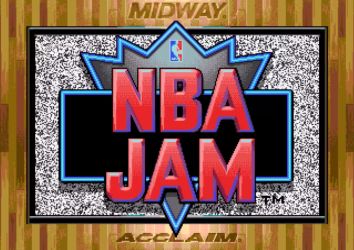
25 years ago… NBA Jam made its rim-rattling console debut.
21 years ago… Age of Empires conquered the PC world.
10 years ago… Super Smash Bros. Brawl fought its way into our hearts.
All three of these games had a massive impact on the video game industry, and the men and women who made them surely have some interesting stories to tell.
 Insert Quarter is a glimpse into gaming’s past, present, and future through an exploration of historical, retrospective, and contemporary reporting.
Insert Quarter is a glimpse into gaming’s past, present, and future through an exploration of historical, retrospective, and contemporary reporting.
Age of Empires wasn’t the first real-time strategy game, but it definitely had an out-sized effect on the genre after its release in 1997. The original game spawned two direct sequels (with a third on the way), as well as mythology-focused spinoff, and several handheld ports. Age of Empire‘s development team, Ensemble Studios, would eventually be tasked with turning the Halo franchise into strategy game (2009’s Halo Wars) before their dissolution nine years ago.
Richard C. Moss tracked down many of Ensemble’s former developers to put together an oral history of Age of Empires for Ars Technica just ahead of the delayed launch of the remastered Age of Empires: Definitive Edition (it was originally supposed to be ready for the game’s 20th anniversary). Beginning with studio co-founder Rick Goodman, Moss probed the interviewees to share their Age of Empires expertise and look back at what made the game tick:
I spoke to several of the two dozen or so people who worked on the original Age of Empires about how it was made. I asked them to reflect on the series’ triumphs, successes, failures, and legacy. This is a compressed retelling of their many stories, focusing on the early days—the building of the foundations that are so central to both the Age story and each of the Age games—but spanning the full breadth of the series’ life.
“The least-worst idea we had”—The creation of the Age of Empires empire
NBA Jam is celebrating a milestone anniversary of its own this year (arcade gamers started “heating up” exactly 25 years ago), but the developers at Midway will tell you it was the home version, released a year later, that truly brought the larger-than-life basketball game to the masses. This revelation, and many others, were unearthed by Alex Abnos and Dan Greene, who interviewed all the key players from NBA Jam‘s development for Sports Illustrated last year.
Developers at Midway wanted Marv Albert to provide the play-by-play for NBA Jam, but the executives knew they could never match his price. Thankfully, Tim Kitrow stepped into the booth and his shouts of “BOOMSHAKALAKA!” and “HE’S ON FIRE!” changed the vocabulary of playground pickup games.
The biggest name in basketball in 1993, Michael Jordan, was also beyond the team’s bank account. His separate licensing fee kept him out of NBA Jam, but His Airness would eventually suit up for the game in a special one-off arcade cabinet that was personally gifted to Gary Payton. Payton’s fellow Seattle-based superstar, Ken Griffey Jr. (complete with his signature backwards cap), was also immortalized in the game’s Player Select screen.
Or maybe Jordan skipped out on NBA Jam because he heard about programmer Mark Turmell’s dirty tricks whenever his beloved Pistons played the Bulls:
Nearly a quarter century ago, the mischievous developers at Midway created NBA Jam, marrying video games and sports in a way never seen before. SI gathered those involved—behind the scenes and on the screen—to reminisce about the iconic coin-gobbling arcade game.
NBA Jam Oral History | Where Are They Now
Super Smash Bros. Brawl is slightly newer than both NBA Jam and Age of Empires, but it’s tenth anniversary this week has a lot of people thinking about Satoru Iwata, the former President of Nintendo who passed away in 2015. Iwata famously announced Super Smash Bros. Brawl on stage at the 2005 E3 Expo before the consolemaker had even started pre-production work on the fighting game, and at that point, they weren’t even in contact with series creator Masahiro Sakurai. But as Iwata said in an Iwata Asks interview from 2008, there was no one else he trusted to do the job.
Rather than grilling Sakurai on his thoughts about the game’s development, Iwata quickly transformed the interview into a friendly chat between old friends, and revealed how much respect and admiration he had for his protege:
My decision to pursue the project in this way rested on one point and one point alone, and it is deeply tied to the point about which I have the utmost faith in a man named Masahiro Sakurai. To state it simply, you are capable of taking a project with nothing and visualizing a completed game almost perfectly in your head.
Iwata Asks: Super Smash Bros. Brawl
It seems almost fitting that Nintendo announced Super Smash Bros. Switch earlier this week. Now if you’ll excuse me, I have something in my eye…

